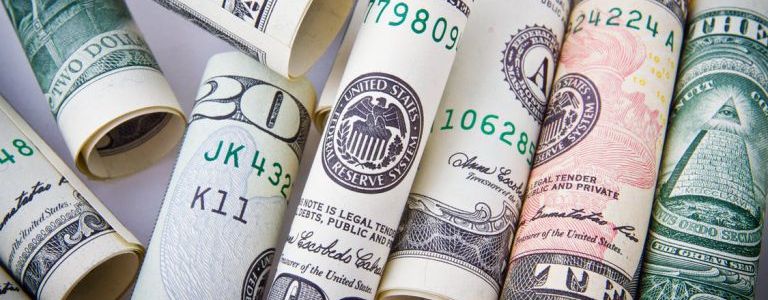Unveiling the Numbers: A Comprehensive Guide to Cash Out Refinance Closing Costs
Written by:
Ashley Altus
Ashley Altus
Certified Financial Counselor
Ashley Altus is a writer and certified financial counselor through the National Association of Certified Credit Counselors.
See full bio
Fact Checked by:
Mike Tassone
Mike is a Co-Founder and Chief Operating Officer of Own Up. He has expertise in all areas of residential lending, having led operations for a top 40 lender in the United States.
See full bio

Fast Links
- What is a Cash-Out Refinance?
- How Much Money Do You Get From A Cash-Out Refinance?
- What Are The Lender Requirements For A Cash-Out Refinance?
- How Much Does It Cost To Refinance?
- Closing Costs Associated With A Cash-Out Refinance
- Other Loan Cost Considerations
- How Do I Avoid Paying Closing Costs?
- The Bottom Line
Homeowners may be interested in refinancing to potentially access a more favorable interest rate. However, that’s not the only reason people refinance.
As you pay down your mortgage, you’ll start to build equity in your home. You can calculate how much equity you have in your home by comparing the amount you owe on your mortgage to the appraised value of your home.
As a home is the typical person's most valuable asset, they may want to tap into some of the money they’ve put into it – or gained through appreciation – with a cash-out refinance to reach other financial goals or pay for big expenses.
Before taking equity out of your home, you’ll want to consider all the costs and potential drawbacks. You may want to consider other options such as taking out a personal loan or using a credit card too.
What is a Cash-Out Refinance?
Whether you have a fixed-rate mortgage or an adjustable-rate mortgage, you can pursue a cash-out refinance. A cash-out refinance allows you to take out some of the equity you have in your home. When it comes to property, equity is a combination of the amount of your home that you have essentially paid off plus any appreciation in the value of your home since you’ve owned it. So the value of the home minus the amount you owe on the loan will equal the amount of equity you have.
Value of home - amount left on home loan = equity
You can then use that money for all sorts of expenses, such as a home repair or debt consolidation – it’s really up to you! However, a cash-out refinance is not free money.
When a homeowner pursues cash-out refinancing for their property, the lender will allow you to borrow from the equity you have in your home. The amount you take out is added to the original loan balance of the mortgage. You're then issued a new loan that consists of the principal balance on your old mortgage plus the amount of cash out that you’ve requested. This larger loan is your new mortgage.
How Much Money Do You Get From A Cash-Out Refinance?
A cash-out refinance will give you a lump-sum to use any way you choose, but the amount will depend on the percentage of equity you have in your home, as well as your financial situation. To avoid any additional risk, a lender will require you to maintain at least a 20% equity in your home.
For example, if the value of your home is appraised at $400,000 and you have a mortgage balance of $300,000, you have $100,000 in home equity. To maintain at least 20% equity in your home, you’ll only be able to take out $20,000 in cash.
Sample calculation: ($400,000 x 80%) - $300,000 = $20,000
What Are The Lender Requirements For A Cash-Out Refinance?
Expect every lender to have their own specifications for borrowers. Just like when you qualified for your original mortgage, lenders will favor borrowers with a high credit score and a low debt-to-income ratio.
How Much Does It Cost To Refinance?
One of the largest expenses you’ll pay if you decide to move forward with a cash-out refinance is closing costs. Just like you did with your current mortgage, a cash-out refinance requires borrowers to pay closing costs.
According to the National Association of Realtors, on average, homeowners paid $6,905 in closing costs for a single-family home. Lender fees for closing a home vary from less than 1% to nearly 6%, depending on your state, price of the home, and loan type.
Closing costs can be subtracted from the lump sum you’re taking out in cash, or they can be paid with other funds.
Closing Costs Associated With A Cash-Out Refinance
Below is a list of fees and other expenses you may be responsible for during the cash-out refinance process.
Loan Application Fee
For a refinance loan, you'll go through an application process just like you did for your current mortgage loan. Lenders may charge you a loan application fee if you decide to move forward with a cash-out refinance.
Loan Origination Fee
These are fees that your lender charges for their service of processing the loan. Because a cash-out refinance will increase the amount you’re borrowing, expect to pay a larger fee, as you'll have a larger mortgage.
Appraisal Fee
To determine the value of your home, you may need to pay for an appraiser to conduct a home appraisal. Expect to pay a couple or several hundred dollars for this service.
Credit Report Fee
Your lender will run a credit check to review your credit history to determine if you meet eligibility requirements for a refinance. Lenders may have a minimum credit score they require to refinance a loan.
Attorney Fee
You may consider hiring a lawyer to review the refinanced loan documentation. It’s common for a borrower to pay a flat fee for this service.
Title Insurance Protection
Because the lender is issuing you a new loan, you’ll need to pay for a new title insurance protection policy. The previous policy expired when the lender paid off the current mortgage loan to issue a refinanced loan.
Other Loan Cost Considerations
On top of closing costs, your mortgage lender and interest rate will determine how much the cost of a cash-out refinancing will cost you in the long run. Just like with refinancing any other type of conventional loan, your interest rate may be different. There’s no hard-and-fast rule that states you need to refinance with your current mortgage lender. As you navigate the refinance process, shop around with a few lenders to find the lowest rates and best loan terms.
How Do I Avoid Paying Closing Costs?
One option you may consider is a no-closing cost refinance. A no-closing cost (or no-cost) loan means that the lender will provide you with a full or partial lender credit for the closing costs but increase your interest rate to compensate for this. Another option is to finance the closing costs, which will add them to the mortgage principal. However, it’s important to keep in mind, this will cost you more in the long run, as you will be paying interest on the closing costs when they become part of your loan.
On the flip side, you may be interested in paying more in closing costs to secure a lower interest rate. Homeowners can buy points, also known as discount points, which will increase the closing costs, but you’ll pay less in interest in the long run, which also means lower monthly payments. Discount points are the inverse of receiving a lender credit from your lender.
The Bottom Line
A cash-out refinance can be an expensive endeavor if you're looking for some extra cash. However, it could be worth it if you’re able to secure a lower mortgage rate. It's important to consider short-term and long-term refinance costs.
If you’re looking to secure funds for a specific financial goal, look at all of your alternatives before committing to a cash-out refinance to ensure it’s an affordable option.


